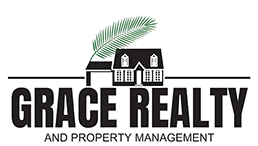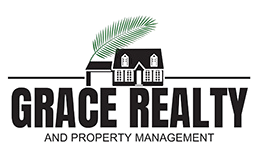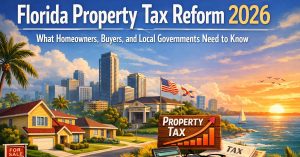Introduction
The real estate market in the U.S. is shifting once again in 2026. Following several years of seesawing interest rates, affordability challenges, and rapid technology adoption, many Americans still believe real estate is the safest long-term investment.
But here’s the good news: You don’t need thousands of dollars to get started. With new investment platforms, creative financing, and flexible ownership models, it’s easier than ever to start building wealth through real estate even with limited funds.
This 2026 guide breaks down proven low-capital real estate strategies that help beginners get started small, grow steadily, and realize their goal of financial freedom.
🏡 Why Real Estate Still Builds Wealth in 2026
Nevertheless, real estate continues to outperform several other asset classes for the following reasons:
- Tangible asset: Real estate is intrinsically valuable; after all, everyone needs to have a place to live and work.
- Cash Flow & Appreciation: Properties generate income on a month-to-month basis while appreciating over time.
- Leverage & Tax Benefits: You can leverage other people’s money via bank loans, partnerships, etc., and even get deductions on interest, depreciation, and expenses.
In short, even with increased prices in homes, real estate remains one of the most accessible avenues towards long-term financial security.
💡 1. Invest in Real Estate Crowdfunding Platforms
Best for: New investors with minimal starting capital
Crowdfunding has exploded in popularity heading into 2026. Platforms like Fundrise, Arrived Homes, and RealtyMogul allow anyone to buy fractional shares of real estate projects — both residential and commercial.
How it works:
- Begin with as little as between $10–$500.
- Pool funds together with other investors to buy or develop properties.
- Earn through rentals and appreciation.
Benefits:
- Low entry barrier
- Fully passive (no landlord duties)
- Diversified exposure across various U.S. markets
Among the easiest, safest, and most scalable entry points for beginners into real estate in 2026 is fractional property investing.
💼 2. Purchase Shares of Real Estate Investment Trusts (REITs)
Best for: Passive investors looking for liquidity
A REIT, or Real Estate Investment Trust, is a company that owns, operates, or finances income-producing real estate. To put it simply, it is the real estate version of the stock market.
You can invest in REITs through:
- Brokerage apps, such as Fidelity, Robinhood, or Charles Schwab.
- Real estate ETFs that hold multiple REITs
Examples (2026 strong performers):
- Prologis (industrial logistics)
- American Tower (telecom real estate)
- Invitation Homes (single-family rentals)
Advantages:
- Get started with $100 or less
- Get paid quarterly dividends
- No headaches from management
If you want exposure to real estate without buying property, REITs are the top 2026 low-cost option.
🏠 3. House Hacking (Live for Free!)
Best for: Homebuyers seeking to minimize living costs
House hacking remains one of the most effective means of owning property with minimal capital.
Here’s how it works:
- Purchase a duplex, triplex, or a small home with as little as 3–5% down using an FHA or VA loan.
- Live in one unit or bedroom.
- Rent out the others to cover your mortgage.
Due to rising rents and home prices, more Americans house hack by 2026, turning their primary residences into income-producing assets.

🤝 4. Partner with Other Investors
Best for: Networked individuals with complementary skills
You don’t always need money; sometimes, your skills and effort are your currency.
Find a partner who can provide funding while you handle:
- Property management
- Deal sourcing
- Renovations or tenant coordination
Agree on a just profit-sharing structure and legalize everything. In 2026, partnerships provide a common strategy when one desires to scale up faster, with limited personal funds.
💸 5. Wholesaling Real Estate
Best for: Hustlers with negotiation and marketing skills
Wholesaling lets you profit from real estate without owning property.
Steps:
- Find undervalued or distressed properties.
- Put them under contract.
- Sell the contract to another investor for a fee.
By connecting motivated sellers with cash buyers, you can make $5,000–$20,000 per deal without any major upfront investment.
It requires effort and networking, but it is one of the most accessible business models in real estate.
💰 6. Utilize Creative Financing Options
Best for: Potential homebuyers with low savings
If bank loans are not an option, here are some alternative financing methods you might consider:
- Seller Financing: The seller acts as your lender.
- Lease Option: Rent now, buy later. A portion of your rent payment goes towards the purchase.
- Private Money Loans: Lend from individual investors, not banks.
These methods make buying property with low or zero down possible, a powerful option in 2026’s high-cost market.
🌆 7. Focus on Growth Emerging & Affordable Markets in the U.S.
Best for: Investors seeking strong cash flow
As the coastal markets become increasingly unaffordable, investors are moving toward secondary and mid-sized American cities that still can offer growth and affordability.
Top affordable cities for 2026 real estate investors:
- Cleveland, OH – affordable prices, good rental yields
- Indianapolis, IN – strong job growth and affordable homes
- San Antonio, TX – population boom and stable economy
- Birmingham, AL – affordable entry-level investments
These markets let you buy income-generating properties for under $150,000, often producing higher rental yields than major metros.
🚀 8. Start Small and Reinvest Your Profits
Start investing with what you can afford — even $100 in a REIT or $500 in crowdfunding. Reinvest your returns, build up your savings, and expand into physical properties when you’re ready for the next step.
Real estate wealth is built step by step; it doesn’t happen overnight. Consistency, education, and patience will be the keys in 2026.
🧠 Pro Tips for Real Estate Beginners, 2026
- Educate before investing: Follow experts, read books such as Rich Dad Poor Dad or The Millionaire Real Estate Investor.
- Establish credit: Good credit opens better loan options.
- Network Locally: Attend real estate meetups or participate in online investor groups.
- Be adaptable: Use tech tools to enable deal analysis or digital property management.
❓ Frequently Asked Questions (FAQ)
1. Can I still invest in U.S. real estate in 2026 with little money?
Absolutely, Fundrise and other similar platforms like Arrived Homes offer the possibility to invest with a starting amount as low as $10–$100.
2. Which is the safest for a beginner in 2026?
Public REITs and real estate crowdfunding are the safest and easiest ways of getting exposure without owning property.
3. How much money do I need to begin house hacking?
An FHA loan requires as little as 3.5% down, which in most cases is less than $10,000, depending on location and property price.
4. What is the most profitable low-capital strategy in 2026?
Wholesaling and house hacking, done correctly, can still be super profitable — both creating income and ownership opportunities.
5. Should I invest in property now or wait for prices to drop?
Waiting for the “perfect time” can backfire; rather, it is more important that the focus should be on buying smart and not necessarily on timing in the market. Cash flow and long-term appreciation mean more than short-term fluctuations.
🏁 Conclusion
The year 2026 promises great prospects in real estate for those who will be willing to start small, stay patient, and learn as they go.
Whether through crowdfunding, REITs, house hacking, or creative financing, remember:
You don’t need a fortune — just a plan, discipline, and the drive to get started.
Start where you are. Use the tools available. And let compounding wealth work in your favor.
Real estate isn’t exclusively for the rich; it’s for the strategic.





